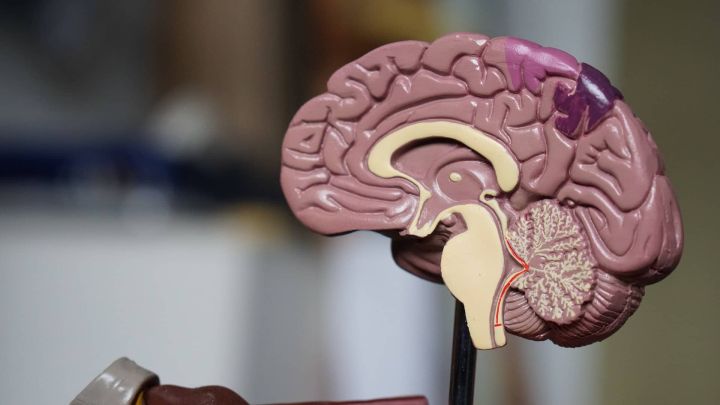Disease
Prevention of cardiovascular disease is more important than treatment
Almost everyone hopes to have a young and healthy heart. However, 62% of people over 40 years old have cardiovascular disease or risk factors to varying degrees, and 80% of them have not yet fully understood how to maintain a healthy heart. Medical research shows that among all internal organs, the heart is most likely to suffer from "obesity", especially in patients with hypertension, which can also lead to gradual thickening of the heart muscle.

Almost everyone hopes to have a young and healthy heart. However, 62% of people over 40 years old have cardiovascular disease or risk factors to varying degrees, and 80% of them have not yet fully understood how to maintain a healthy heart. Medical research shows that among all internal organs, the heart is most likely to suffer from "obesity", especially in patients with hypertension, which can also lead to gradual thickening of the heart muscle.
Atherosclerosis is on the rise
According to data, it is currently in the rapid development period of the prevalence of cardiovascular atherosclerotic disease risk factors, including 160 million patients with hypertension, 160 million people with dyslipidemia, 60 million people with diabetes, 40 million people with impaired glucose tolerance, 60 million people with obesity, 200 million people with overweight, and 330 million smokers. The rapid increase of these risk factors will inevitably lead to the outbreak of atherosclerotic diseases in the next 10 years or so. Statistics show that the incidence of myocardial infarction and stroke in young and middle-aged people has increased significantly, and it is not uncommon for people in their 20s to have myocardial infarction or even stroke. The trend of younger age of atherosclerotic diseases such as myocardial infarction and stroke is attracting the attention of the whole society.
In order to prevent the occurrence of myocardial infarction and stroke, we should reduce or eliminate the risk factors. For example, control hypertension, high cholesterol, high blood fat, diabetes, obesity, and quit smoking, and at the same time, pay attention to avoid some external incentives that cause myocardial infarction. For example, when the season changes, when the weather changes, pay special attention to your heart, whether there are related signs, such as chest tightness, chest pain, heart palpitations, nausea, panic, shortness of breath, fatigue, dizziness, abdominal distension, etc. At this time, you should immediately stop what you are doing and take a rest, If the symptoms persist, go to the hospital in time. This is more important for those who already have many of the above risk factors. At the same time, if you know that you are a high-risk group of coronary heart disease, stroke or have been diagnosed with atherosclerosis disease, you should find a doctor to take medicine on time according to your condition and change your lifestyle and increase exercise according to the doctor's recommendations, but you should avoid overwork, emotional excitement, not eating and bathing when your body is not in time, and keep your stool smooth.
Some patients have premonitory symptoms before myocardial infarction, which should be paid close attention to. Such as transient chest pain, chest tightness, and repeated attacks, or the duration of the attack is prolonged or aggravated, these symptoms are often transient, so they are often ignored. If severe chest pain or dyspnea is accompanied by cold sweat, restlessness, fear, pale face, etc., it often indicates that myocardial infarction will occur. Once this happens, go to the hospital immediately. Time is life.

Prevention is more important than treatment
The health concept that cardiovascular disease prevention is more important than treatment means that cultivating a healthy lifestyle can prevent cardiovascular disease to a large extent. Some studies have shown that a good and healthy lifestyle, including low-fat diet, regular exercise, smoking cessation, work and rest, and on this basis, appropriate drug treatment, such as controlling blood pressure, lowering blood lipids, and controlling blood sugar, can reduce the risk of cardiovascular and cerebrovascular diseases by 90%, so as to maintain a "young" heart.
Data shows that in recent years, nearly 60% of young and middle-aged patients with myocardial infarction have bad living habits. At this age, most of them are the backbone of the business. They work hard and are under great pressure. To reduce the pressure, they have developed smoking, drinking, high-fat diet and nightlife habits. Over time, the "three highs" (high blood sugar, high blood pressure, high blood fat) unconsciously become entangled. Because this age group is still in the early stage of decline of body function, and relying on youth, the body can hardly feel any discomfort and omen of disease at ordinary times, but it has already buried a "time bomb".
Matters needing attention
In order to maintain a healthy young heart, we should pay attention to the following issues:
Change the unhealthy lifestyle 1. Live a regular life, combining work with rest, and work and rest on time. Physical activity is extremely important for keeping your heart healthy. Running for 1 hour or more per week can reduce the risk of heart disease by 42%; Walking fast for 30 minutes every day can reduce the risk of heart disease by 18% and the risk of stroke by 11%. Walking to work is the most cost-effective way to achieve this amount of exercise. This can reduce blood pressure and protect the heart. At the same time, maintain a peaceful attitude. Bad emotions such as nervousness, excitement and anger can cause sympathetic nerve excitement in the body, increase the release of angiotension such as catecholamine, vasospasm, and blood pressure will inevitably rise, and then the heart will be affected. 2. Improve the eating habits, reduce the intake of fat, high protein and high calorie foods, and increase the intake of fiber foods, such as eating less fish and meat, eating more vegetables and fruits, and getting 70% to 80% full. 3. Get rid of bad habits, such as smoking and drinking. Although there are data that a small amount of alcohol can reduce the incidence of myocardial infarction, it will also affect the liver and blood pressure. Therefore, it is not recommended to use alcohol to prevent the occurrence of atherosclerosis.
Actively treat "three highs" 1. Use antihypertensive drugs reasonably to reduce blood pressure readings to an ideal level (below 120/80mmhg). There are data as evidence: researchers from 4 hypertension treatment centers in the United States have observed more than 900 patients with hypertension and cardiac hypertrophy for 4 years. The results show that the weight of left ventricular myocardium in all patients has been reduced by 26-34g by adhering to reasonable antihypertensive treatment. Isn't the "fat reduction" effect of antihypertensive treatment obvious at a glance? 2. Pay attention to the prevention and treatment of diabetes. We should not wait for the blood sugar to rise before treatment. We should provide long-term treatment for diabetes patients and early treatment for people with diabetes risk factors. Recently, various worldwide large-scale studies have confirmed that early treatment of such patients can reduce cardiovascular and cerebrovascular diseases by more than 50%. 3. Eliminate the hidden danger of abnormal blood lipid. It should be noted from the adolescence that mild dyslipidemia can be corrected as long as the lifestyle is improved; The patients with obvious abnormal blood lipid, especially those with multiple risk factors, should be treated as soon as possible. Many studies have shown that active lipid-lowering treatment can reduce the incidence of cardiovascular and cerebrovascular diseases by more than 30%.
As long as we take care of ourselves, start from the little things in life, "keep our mouths shut and keep our legs open", form the habit, and get used to it, we can stay away from cardiovascular diseases, and keep our hearts young and healthy as much as possible.
-
![]()
![]() DiseaseFeb 18, 2026
DiseaseFeb 18, 2026What Exactly Are The Symptoms Of An Advanced Brain Tumour? What Are The Physical Signs?
-
![]()
![]() DiseaseFeb 17, 2026
DiseaseFeb 17, 2026The Prerequisite For a Handsome Man: a Healthy Prostate
-
![]()
![]() DiseaseFeb 16, 2026
DiseaseFeb 16, 2026The Most Important Task For Diabetics Is To Prevent Coronary Heart Disease
-
![]()
![]() DiseaseFeb 15, 2026
DiseaseFeb 15, 2026What Are The Causes Of Nasopharyngeal Carcinoma? What Are The Treatment Options For Nasopharyngeal Carcinoma?
-
![]()
![]() DiseaseFeb 14, 2026
DiseaseFeb 14, 2026What Do I Need To Do To Check Myself For Nasopharyngeal Carcinoma? What Tests Are Needed To Confirm The Diagnosis Of Nasopharyngeal Carcinoma?




